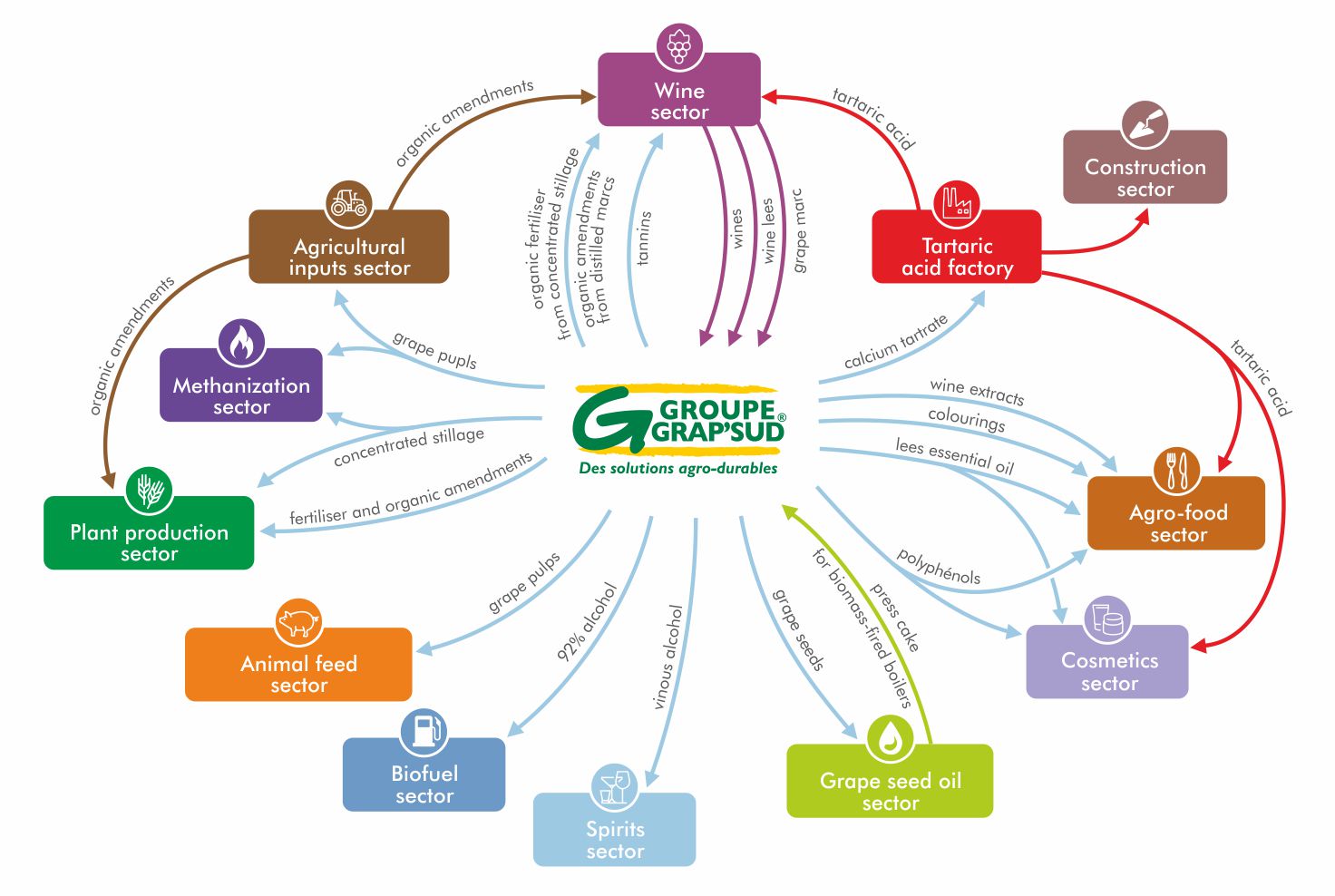Strategic values and visions

- You are here :
- Grap'Sud
- The Group
- Strategic values and visions
Strategic values and visions
The 6 fundamental values of the group constitute the foundation of our identity and of our business culture. They are embodied in distinctive features that guide both our business plan and our daily actions:

Grap’Sud’s food safety management system works towards client satisfaction and ensures continued improvement.
The Grap’Sud group’s strategic vision reflects our aspirations and is a visualisation of the future to guide and mobilise our resources:
- To be a recognised player in a sustainable player in the sector of valorisation of agricultural co-products
- To develop innovative and economically viable solutions for our strategic markets.
Sustainable Development forms part of the inborn character of our co-operative group. The activities carried out by the Grap’Sud group of recycling and recovery of co-products from winemaking interlocks perfectly into a circular economy, the aim of which is to produce goods and services sustainably by limiting consumption, dissipation of resources, and the production of waste.
The group’s value chain thus reintegrates the grape marc, the wine lees and other co-products into new economic circuits in a perspective of green growth. All these actions are yours and can therefore enhance your own CSR (Corporate Social Responsibility) approaches.

The nature of our economic model entails a certain number of missions in relation to our economic and social eco-system:
- Defending the co-operative model
- Developing and enhancing production in our regions
- Participating in the management of our farming network
- Innovating for our clients to succeed
- Deploying our expertise on an international scale
- Developing our colleagues’ human potential
In addition, the Grap'Sud group has always adopted a proactive policy for the protection of the environment and the reduction of its impacts. With its ICPE-classified sites, the Grap'Sud group complies with the French environment protection regulations in force and is strongly committed to:
- The protection of water resources,
- The prevention of atmospheric pollution,
- The reduction and elimination of waste,
- The prevention of noise nuisance,
- The limiting of landscape impacts,
- The prevention of accidents and well-being at work.